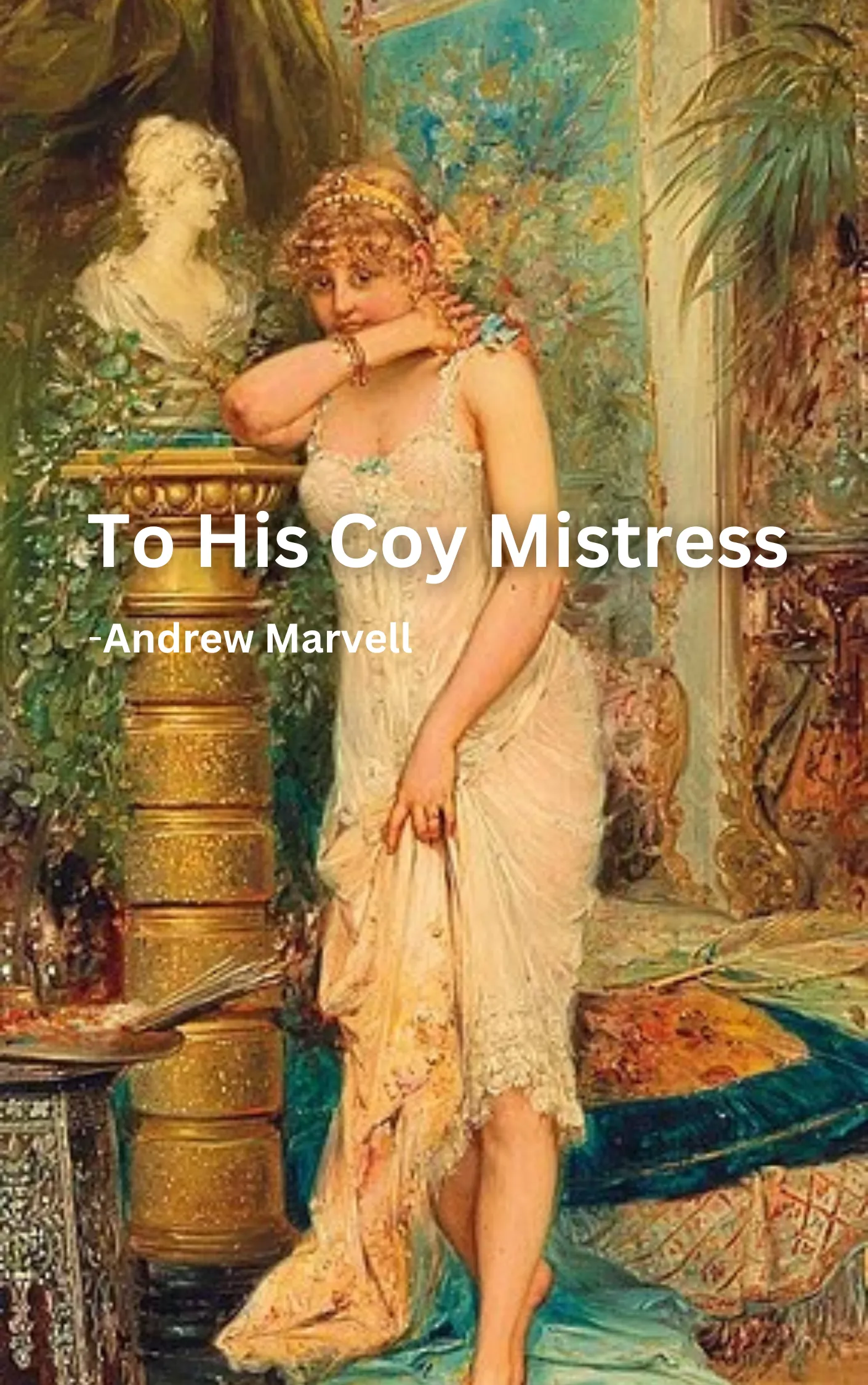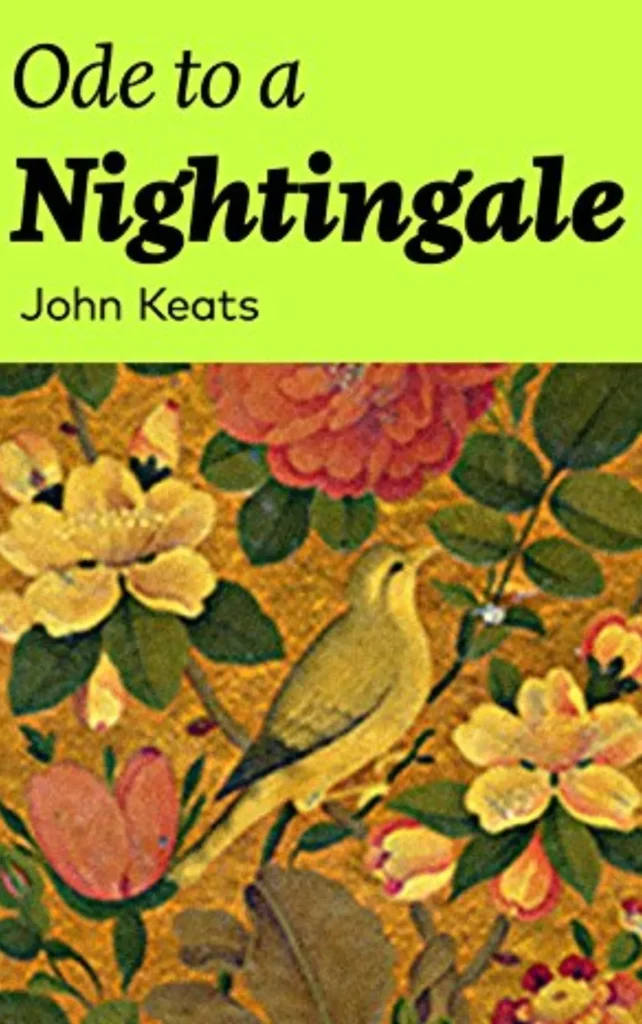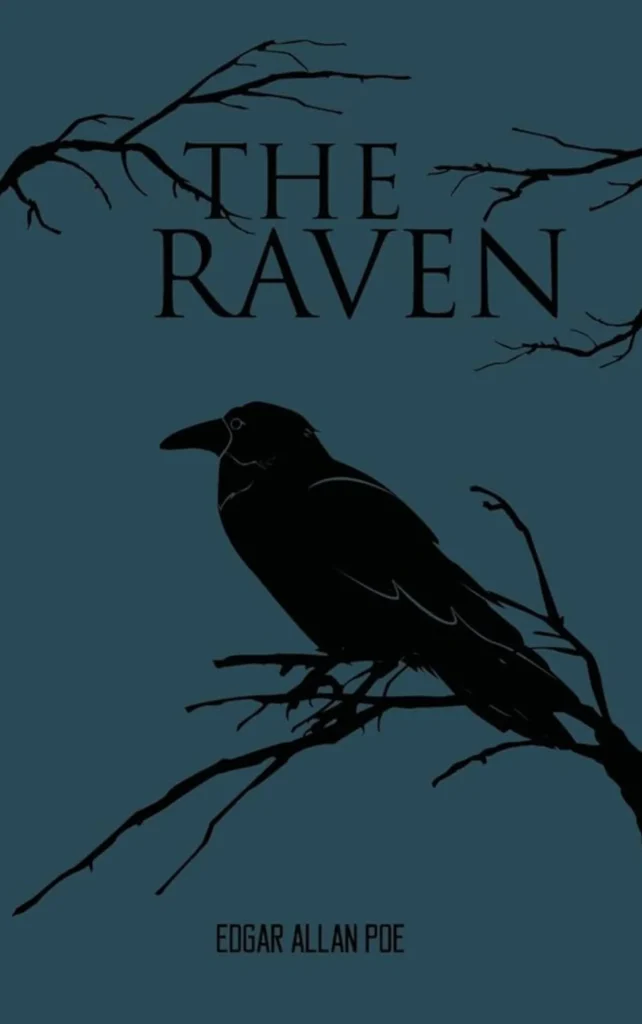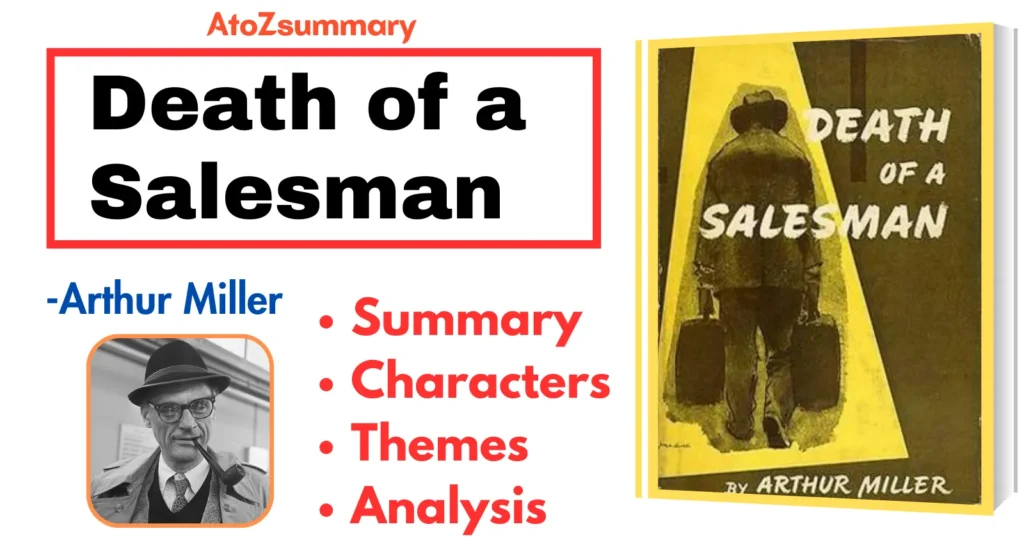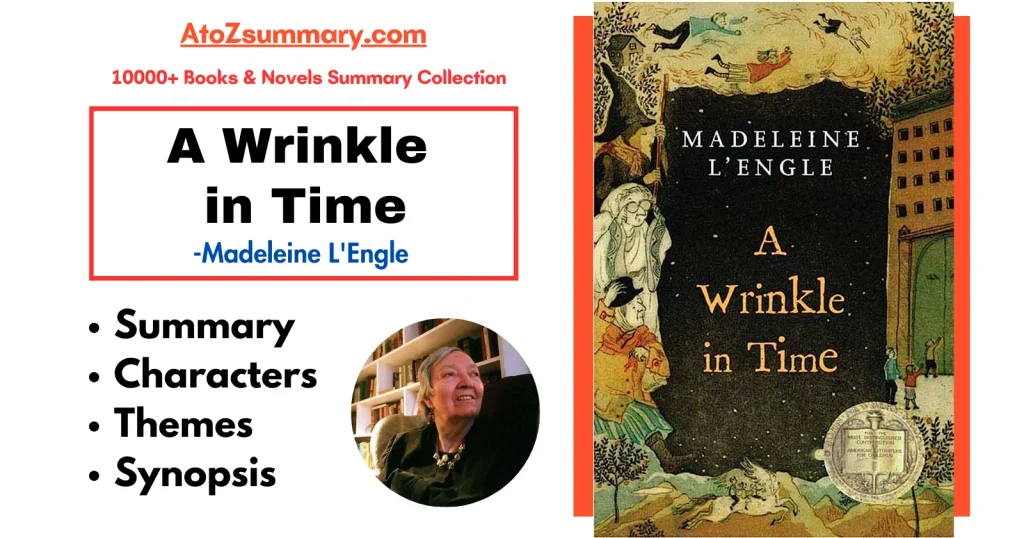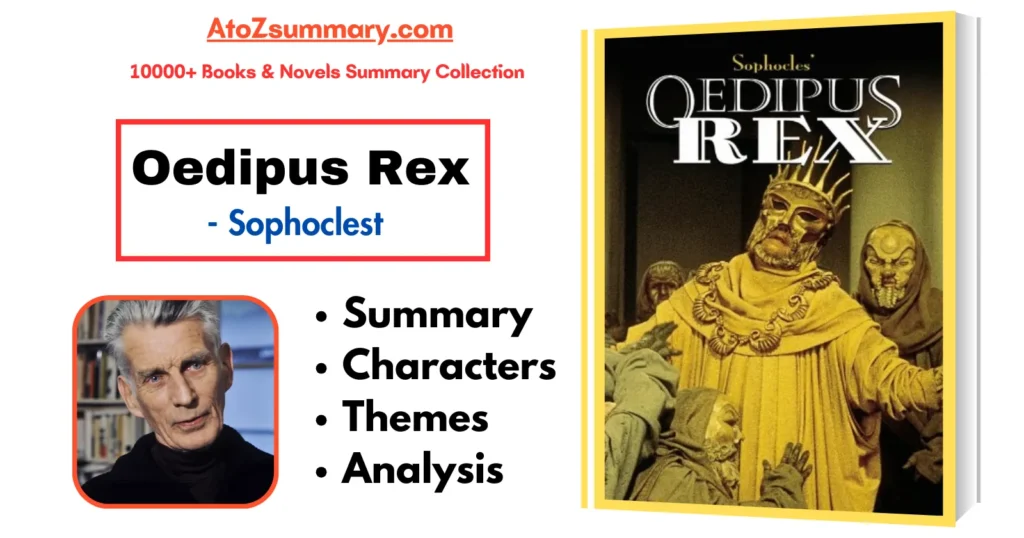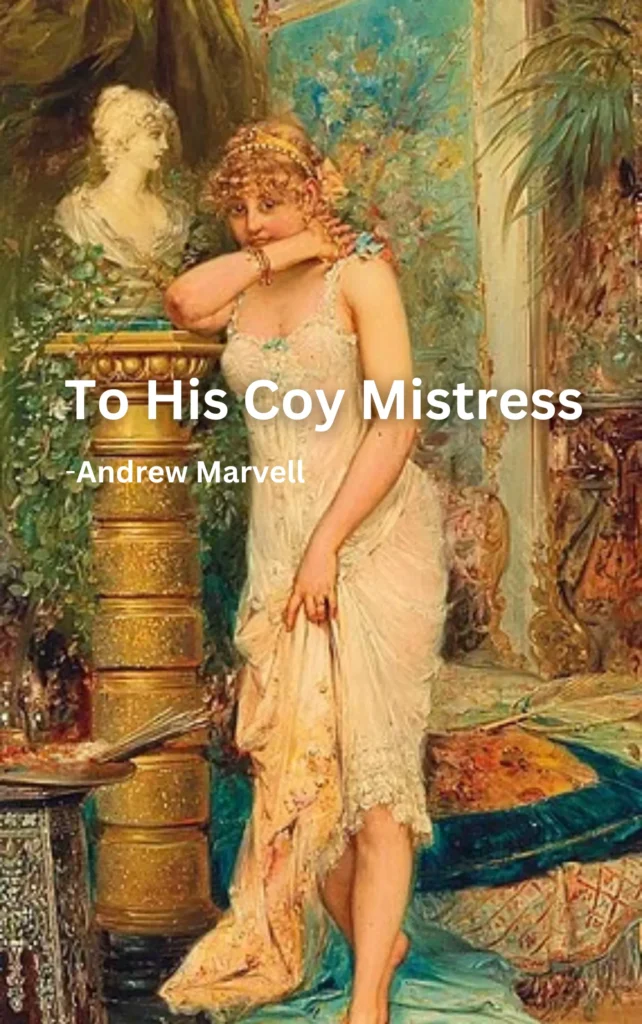
About Poem: To His Coy Mistress
| Poem Title | To His Coy Mistress |
| Author | Andrew Marvell |
| Date of publication | 1681 |
| Genre | Metaphysical poem |
| Theme | Carpe diem, love, and mortality |
| Form | Iambic tetrameter couplets |
| Key literary devices | Metaphor, simile, hyperbole, and personification |
| Famous lines | -Had we but world enough, and time. -This coyness, lady, were no crime. -But at my back I always hear -Time’s winged chariot hurrying near. |
Themes: To His Coy Mistress
The themes of the poem “To His Coy Mistress” by Andrew Marvell are:
- Carpe diem: The speaker urges his mistress to seize the day and enjoy their love, arguing that time is short and life is uncertain.
- Love: The poem is a celebration of physical love and the power of passion.
- Mortality: The speaker reminds his mistress that they are both mortal and that their time together is limited.
- Urgency: The speaker implores his mistress to act quickly and not to let their love go to waste.
To His Coy Mistress Poem
Had we but world enough and time,
This coyness, lady, were no crime.
We would sit down, and think which way
To walk, and pass our long love’s day.
Thou by the Indian Ganges’ side
Shouldst rubies find; I by the tide
Of Humber would complain. I would
Love you ten years before the flood,
And you should, if you please, refuse
Till the conversion of the Jews.
My vegetable love should grow
Vaster than empires and more slow;
An hundred years should go to praise
Thine eyes, and on thy forehead gaze;
Two hundred to adore each breast,
But thirty thousand to the rest;
An age at least to every part,
And the last age should show your heart.
For, lady, you deserve this state,
Nor would I love at lower rate.
But at my back I always hear
Time’s wingèd chariot hurrying near;
And yonder all before us lie
Deserts of vast eternity.
Thy beauty shall no more be found;
Nor, in thy marble vault, shall sound
My echoing song; then worms shall try
That long-preserved virginity,
And your quaint honour turn to dust,
And into ashes all my lust;
The grave’s a fine and private place,
But none, I think, do there embrace.
Now therefore, while the youthful hue
Sits on thy skin like morning dew,
And while thy willing soul transpires
At every pore with instant fires,
Now let us sport us while we may,
And now, like amorous birds of prey,
Rather at once our time devour
Than languish in his slow-chapped power.
Let us roll all our strength and all
Our sweetness up into one ball,
And tear our pleasures with rough strife
Through the iron gates of life:
Thus, though we cannot make our sun
Stand still, yet we will make him run.
Watch Summary of Poem “To His Coy Mistress” on YouTube
To His Coy Mistress Summary & Analysis
To His Coy Mistress by Andrew Marvell is a classic metaphysical poem that explores themes of time, love, and mortality. The poem is structured as a persuasive argument made by the speaker to his coy mistress, urging her to seize the moment and engage in a passionate relationship. Here’s a stanza-wise summary:
Stanza 1
The speaker begins by addressing his “coy mistress,” expressing his willingness to court her for an extended period if they had all the time in the world. He paints an idealistic picture of a gradual and endless courtship, using the river Ganges and the Humber (a British river) as symbols of timelessness.
Stanza 2
In this stanza, the speaker shifts to a more realistic and urgent tone. He acknowledges that they do not have the luxury of infinite time. He uses the imagery of a “vegetable love” to describe a love that grows slowly and gradually, which is impractical given the brevity of life. The use of “Deserts of vast Eternity” emphasizes the idea that time is vast and endless.
Stanza 3
The speaker uses the metaphor of a love song to illustrate how they could continue to sing praises to each other forever if they had the time. This serves to underline the idealized notion of love, but he quickly reminds his mistress that they do not have this luxury.
Stanza 4
This stanza takes a darker turn as the speaker describes the inevitability of death. He personifies time as a winged chariot hurrying near, which will carry them to the grave. The urgency and fear of mortality are evident as he describes the relentless march of time.
Stanza 5
The speaker then shifts from describing the threat of time to making a compelling argument. He tells his mistress that, since they cannot stop time, they should embrace the present and engage in physical intimacy while they still have the opportunity.
Stanza 6
The final stanza brings the argument to a close. The speaker tells his mistress that they should seize the moment and make the most of their time together, ignoring the constraints of societal morals or time’s passage. He suggests that their love will be even more powerful because it is fleeting and passionate.
FAQs: To His Coy Mistress
What is the overall meaning of To His Coy Mistress?
The overall meaning of To His Coy Mistress is that we should seize the day and enjoy our love, because life is short and time is running out.
What is the moral of the poem To His Coy Mistress?
The moral of the poem “To His Coy Mistress” is to seize the day and enjoy the time you have with the people you love, because life is short and uncertain.
What is irony in To His Coy Mistress?
The irony is that the speaker’s mistress is so concerned with her modesty that she is risking missing out on the opportunity to experience true love and passion.
What are the three arguments in To His Coy Mistress?
The three arguments in To His Coy Mistress are:
▶ If we had more time, your coyness would be acceptable.
▶ But we don’t have much time, so we should seize the day and enjoy our love.
▶ Otherwise, we will die and never have had the chance to experience our love to the fullest.
What does the grave’s a fine and private place mean?
The line “the grave’s a fine and private place” means that death is the ultimate place of privacy and solitude.
What does world enough and time mean?
The line “world enough and time” means eternity, or an infinite amount of time and space. The speaker is saying that if they had eternity, they would be content to take their time and enjoy their lovemaking. However, since they do not have eternity, they need to act quickly and seize the day.

